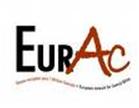Cracks In The Mirror As Rwanda Prepares For Elections
Cracks in the mirror as Rwanda prepares for elections.
Post-field visit report, March 2010
by Kris Berwouts,
Director of EurAc
I visited Rwanda during the second week of March 2010.
In recent years I have often passed through this country which I have been visiting since 1997, usually in transit to Goma, Bukavu or Bujumbura.
Each time I have taken advantage and met some personal or professional contacts, but since 2007 I have never stayed more than 24 hours.
I have, of course, always kept up to date with what was happening in Rwanda and, together with my colleagues at EurAc, I have made a continuing effort to provide information to understand the issues better and to discuss them objectively. Such a � leitmotiv � is relevant everywhere but it is especially important in the case of Rwanda: here very often the arguments between “believers” and “non- believers” are like the deaf listening to the dumb.
In the weeks just before my arrival it was possible to feel considerable tension building up in the country. Of course we all expected the space for political dialogue to be reduced in the months leading to the election.
The demonization of Victoire Ingabire when she returned to the country to lead a campaign for president as the candidate of the opposition party, FDU-Inkingi, led to increasing aggression against the other opposition parties present inside the country.
On 19 February, a Friday evening, various well frequented places in the capital were the subject of three grenade attacks at the height of the rush hour resulting in two deaths and several people wounded.
The Rwanda media first accused the FDLR, then Victoire Ingabire for these attacks.
On Thursday 4 March 2010 in two further, almost simultaneous, bomb attacks in Kigali 16 more people were wounded. These acts of violence were followed by a wave of accusations and arrests.
In the time between the two attacks, General Faustin Kayumba Nyamwasa left the country and went to South Africa.
After his departure this former Chief of the General Staff of the Rwandan army was accused of being behind the grenade attacks of 19 February and of being associated with the former chief of foreign intelligence, Colonel Patrick Karegeya, who has been in South Africa since 2007.
On Saturday 6 March, the Rwanda authorities announced the arrest in Burundi of an opposition activist, D�o Mushayidi, accused by Kigali of being one of the authors of the recent grenade attacks. Gradually the bomb throwers started to outnumber the bombs.
You can understand that I did not know very well what to expect. As the days went by I had a problem knowing exactly why the situation seemed to me to be different from what it was the other times I had visited the country.
I noticed that the people felt fear, but that had long been the case. I saw a closing up of the political space but this had often been experienced before.
I had not remembered grenade attacks in the recent past (but a little research after my return told me that there had been in April and December 2008 and in April and July 2009), but at the same time I had the impression that the grenades were a symptom rather than a cause of events.
It was my wish and my duty to bring together all these bits of information in one solid piece of analysis.
Finally what was really new dawned on me: I was watching a r�gime which was primarily not fighting its enemies; it was struggling to prevent its own disintegration.
For ten years we had speculated about divisions within the inner circle of power. We always realized that there were disagreements but no-one could help me precisely define these divisions.
Today when the r�gime looks at itself in the mirror it can see the cracks that belie the united and serene image which it wants to show to the public in Rwanda and internationally.
The r�gime has come face to face with its own fragility; it is nervous and is reacting out of all proportion.
by Kris Berwouts,
Director of EurAc
Intro: Cracks in the mirror as Rwanda prepares for elections
1) Open debate in a closed political context?
2) Hawks on the run
3) D�o Mushayidi
4) Cracks in the mirror
Conclusion: more questions than answers.
You will read in the following pages my findings, my impressions and my analysis. This does not reflect EurAc’s official position. It is based on the reflections of a single person and only he is committed by it � a person who, as usual, returns from a visit with more questions than answers.
Read further: Open debate in a closed political context?
Kris Berwouts
Director, EurAc
www.eurac-network.org
EurAc is the European Network of Active NGOs in Central Africa. EurAC is made up of 49 member-organisations from 12 European countries.



0 comments
Kick things off by filling out the form below.
Leave a Comment